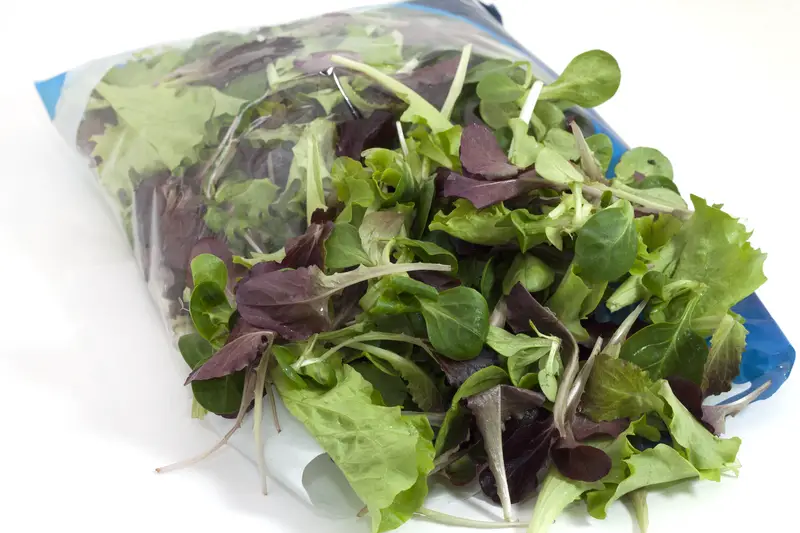Pre-packaged salads have become a supermarket staple, promising convenience and health in one neat plastic container. However, recent studies reveal some unsettling facts about these ready-to-eat greens that might change how you think about your quick lunch option.
Hidden bacteria in triple-washed greens

Despite claims of being “triple-washed” and ready to eat, testing has shown that 39% of pre-packaged salads exceed acceptable levels of coliform bacteria. More concerning, 23% contained high levels of enterococcus, indicating potential fecal contamination.
These bacteria levels aren’t consistent – even within the same brand, some packages contained more than 1 million colony-forming units per gram. Spinach-containing packages and those approaching their use-by date typically showed higher bacteria counts.
Recent outbreaks raise serious concerns
Multiple outbreaks linked to pre-packaged salads have occurred, involving dangerous pathogens like E. coli O157:H7, Listeria, Salmonella, and Cyclospora. These incidents have particularly severe consequences for pregnant women, young children, elderly individuals, and those with compromised immune systems.

What if your convenient salad became a source of serious illness? Consider this: in 2020, a major outbreak linked to Fresh Express products affected multiple states, leading to widespread recalls across popular retailers including ALDI, Walmart, and Jewel-Osco.
Smart alternatives for safer salads
Research suggests that whole heads of lettuce might be safer than pre-packaged options. The inner leaves have less exposure to contamination sources. Mixing different types of greens, such as adding kale or collard greens, provides natural antimicrobial protection against certain bacteria.

The food industry isn’t ignoring these issues. The Food Safety Modernization Act has established science-based standards for produce safety, while government agencies and researchers work to improve outbreak investigation and prevention methods.
Practical safety measures for consumers
When choosing pre-packaged salads, inspect the packaging for damage and check expiration dates carefully. Store products at proper refrigeration temperatures. Despite “triple-washed” claims, an extra rinse before consumption provides additional safety.
Monitor food safety alerts through FDA and CDC websites. Currently, there are no federal limits for indicator organisms in produce, unlike standards for water, raw meat, and milk – a gap that food safety advocates are working to address.
Pre-packaged salads remain a popular choice for busy consumers, but understanding the risks allows for informed decisions. Whether choosing whole heads of lettuce or pre-packaged options, proper handling and awareness of safety guidelines help minimize potential health risks while maintaining the benefits of including fresh greens in your diet.

